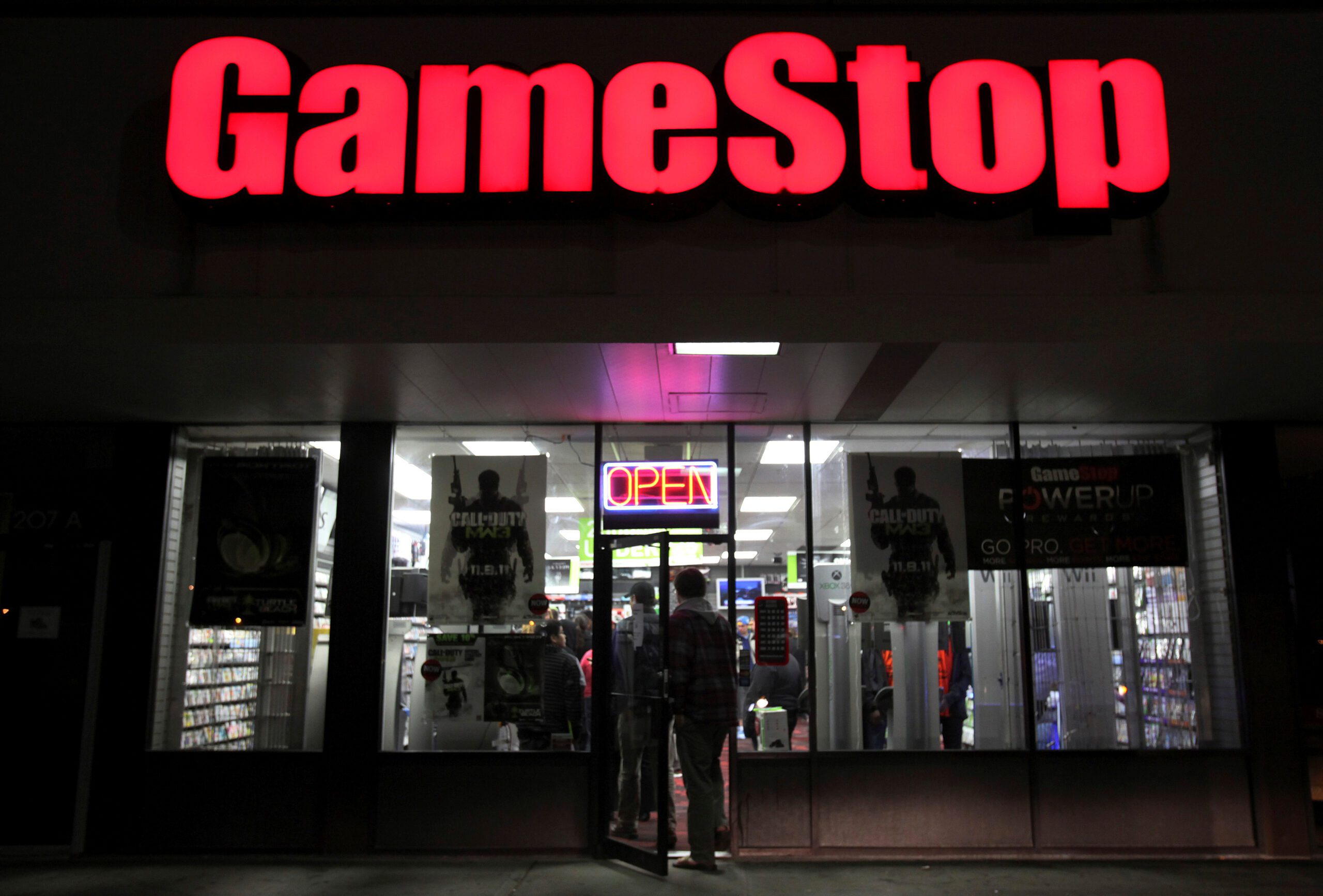|
Getting your Trinity Audio player ready...
|
GameStop’s (GME) stock price rollercoaster continued in June, with a dramatic rise followed by a steep crash. This volatility coincided with the much-anticipated return of Keith Gill, the internet personality known as “Roaring Kitty,” who sparked the meme stock frenzy in 2021.
Hype Followed by Reality Check
In May, Gill’s return to social media sent GameStop shares soaring over 250%. However, this momentum couldn’t be sustained. The stock price peaked above $67 per share in anticipation of Gill’s first livestream since 2021, but then plummeted to $24 by Friday, July 10th.

This sharp pullback likely stemmed from a combination of factors:
- Disappointing Earnings: GameStop’s second-quarter earnings report fell short of expectations. While the company narrowed its losses year-over-year, sales figures missed analyst predictions.
- Early Earnings Release: GameStop originally planned to release earnings later in the week. The unexpected early announcement fueled speculation it was a strategic move to temper excitement before Gill’s livestream.
- New Stock Issuance: GameStop announced plans to sell an additional 75 million shares, diluting existing shares and potentially impacting their value in the short term.
Roaring Kitty’s Influence and Legal Questions
Gill’s influence on GameStop’s stock price is undeniable. His social media activity triggered the May rally, and the livestream announcement caused another surge. This raises questions about potential market manipulation. While Gill maintained he wasn’t acting in concert with anyone, his role in inflating the stock price cannot be ignored.
Regulatory bodies are taking notice. Former SEC Commissioner Michael Piwowar believes the SEC is likely investigating Gill, but acknowledges the lack of clear evidence of wrongdoing.
Looking Ahead
The future remains uncertain for GameStop. The company’s long-term success hinges on CEO Ryan Cohen’s ability to turn the business around. New capital from the stock issuance could be a positive step, but it hinges on effective utilization.
This episode highlights the inherent risks of meme stock investing, fueled by hype and social media trends rather than traditional financial analysis.
Disclaimer: The information in this article is for general purposes only and does not constitute financial advice. The author’s views are personal and may not reflect the views of Chain Affairs. Before making any investment decisions, you should always conduct your own research. Chain Affairs is not responsible for any financial losses.
I’m your translator between the financial Old World and the new frontier of crypto. After a career demystifying economics and markets, I enjoy elucidating crypto – from investment risks to earth-shaking potential. Let’s explore!



